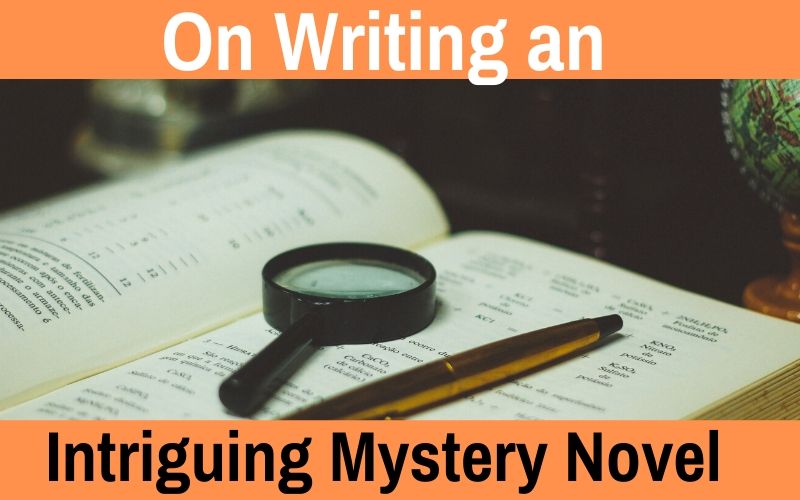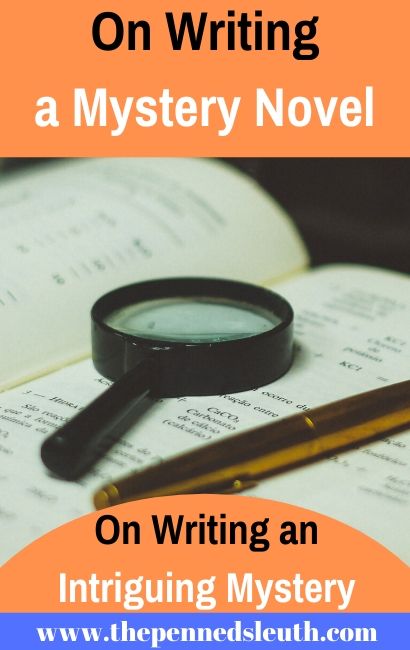Latest Writing Video! |
|
The mystery genre has always been an interesting topic. Many of my students believe it to be a difficult genre, as you need to lay down a series of clues without arousing the reader’s suspicion. Yes, it is better if the reader doesn’t expect what happens next, but that isn’t what will make your mystery great. Allow me to explain in this handy checklist for writing a mystery! What makes a mystery?First, the plot of a novel is normally set in a crime scenario, but this isn’t always the case. Yes, you can write from the perspective of an intelligent protagonist who works with or alongside the police. However, you can also write novel surrounding a character who goes on an archaeological adventure, solving puzzles and discovering the mystery of their past. That’s just an example off the top of my head, which should tell you the flexibility of what you have to work with. You can create a fascinating mystery novel without having to kill someone to do it. Of course, that comes down to preference, so you will decide on what you prefer! What is the mystery writing style?Generally speaking, I don’t like to recommend writing styles to my students. The main reason being it is better to write in your own style, no matter what the genre. Still, I will of course talk about what is common in the genre, what suits it. First, descriptive writing. Descriptive writing is the foundation of mystery writing as it involves throwing a lot of information at the reader. Sometimes this writing can switch from emotional writing to more logical writing. It depends on the mindset you want the reader to be in during certain scenes. Second, in this writing it is better to show than to tell. It not only helps the reader ‘be in the moment’, but it helps distract the reader as well. Important details can be lost in the chaos of an emotional moment. Let us discuss that! Laying Down CluesThere are two types of clues that you will present in your novel. The first type is the clues that will help the reader work out what is going on for themselves, but these often misdirect or hide information from the reader. These clues stand out. Yet, the second type of clues are well-hidden or not presented directly. These are the clues that can often change the story, leading to a twist. To make these twists or new discoveries more impactful, you need to hide them well. That is when you use misdirection. Misdirection is when you attract the reader’s attention to something else, keeping them from seeing the trick. A technique often employed by magicians, but also by craft writers. Perfecting MisdirectionAs a writer you have many tools in your arsenal. Some of these will help distract the reader from your most important clues. Or perhaps, give them an idea that nothing is as they seem. A great tool to use for misdirection is dialogue. Dialogue, especially threatening or emotional, often distract the reader from smaller details. These are the places where you include the clues you want to hide. In addition to that, you need to make the important seem benign. A brilliant mind knows that the best way to hide their doings is to make them appear normal and unimportant. In doing so, a clue is thrown to the back of the reader’s mind. Perfect placement to call back on later in the novel. Plan Like a Mad GeniusWhether you are creating the perfect crime scene, the most intriguing puzzle or the toughest riddle, you need to plan like a mad genius. Patience is the word I recommend in these cases, as patience will help you develop a brilliant mystery novel. Plan out how the crime is done as if you were the person committing it. How would you cover your tracks? In addition to that, if you are familiar with popular antagonists such as Hannibal, how do you imagine they would cover their tracks? In doing so, your plans become more methodical and complex. Your protagonist has a tougher time, which makes for a more interesting novel. Search deep writers, as you have that mad genius inside you. That amazingly terrifying mind that can construct the most devious plans and carry them out in the most fascinating ways. With that being said, the mad genius can also be the protagonist, who in turn outwits the antagonist or moves past the obstacles in brilliant ways. Afterall, Sherlock Holmes is a mad genius himself and it took some equally as brilliant to challenge him truly. Be RealisticAnother important point to bring up is that the best mysteries are realistic. It is hard to create an enjoyable mystery that makes use of fantasy elements such as magic. It means the reader will immediately give up trying to understand what is going on, as only the writer fully understand their own fantasy systems. In addition to that, realism also makes for more suspenseful scenes. In the mystery novels you have the protagonist is threatened by common threats. Be it guns or knives, the threat is very real and believable. Yet in a fantasy scenario, the reader doesn’t feel that ambience. The reader doesn’t know if it will be magic, a goblin or terrible demon that threatens the protagonist. In that way, not knowing what to expect has the reader give up. The reader doesn’t use their imagination anymore, they are simply an observer. Be realistic, make the reader tense, keep their minds thinking. Keep the Ending in MindThere is a reason Columbo shows the crime in the beginning and the rest of the show is watching the good detective figure it out. To some this is no surprise, but you must keep the end in mind. The ending is when everything comes together. The clues make sense, the hidden is revealed and the final confrontations transpires. That is what you need to write towards. Mystery novels require this planning and forethought, as there are many genres you can simply write as you go. In those genres an ending can be constructed on the fly, but in a mystery novel the ending shoulder be designed first. For many writers this is difficult, as many writers write as they read. These writers develop the stories haphazardly, so that way they discover almost as much as the reader. It is a wonderful feeling, which is why so many do this. Yet, to make a truly outstanding novel, you need to write for a reader, not write as a reader. Many understand this and have gone on to write bestsellers and classics. ConclusionWriting a mystery novel can be intimidating, especially if you are more comfortable with straightforward fantasy, action or thriller. As long as you keep the above advice in mind, you should have little-to-no difficulty in writing the mystery novel you have in mind. As always, good day, goodnight and happy writing! Thank YouDear Writer, As a big thank you for reading this article I would like to offer you something for FREE! A writing course on how to improve your main character! Click here to check it out your course. In addition, if would like to receive more content, bonuses and some big discounts on future courses, join the writers group here. Thank you very much for reading! Kind regards Matthew Dewey, Writer Pin for Later!
0 Comments
Leave a Reply. |







